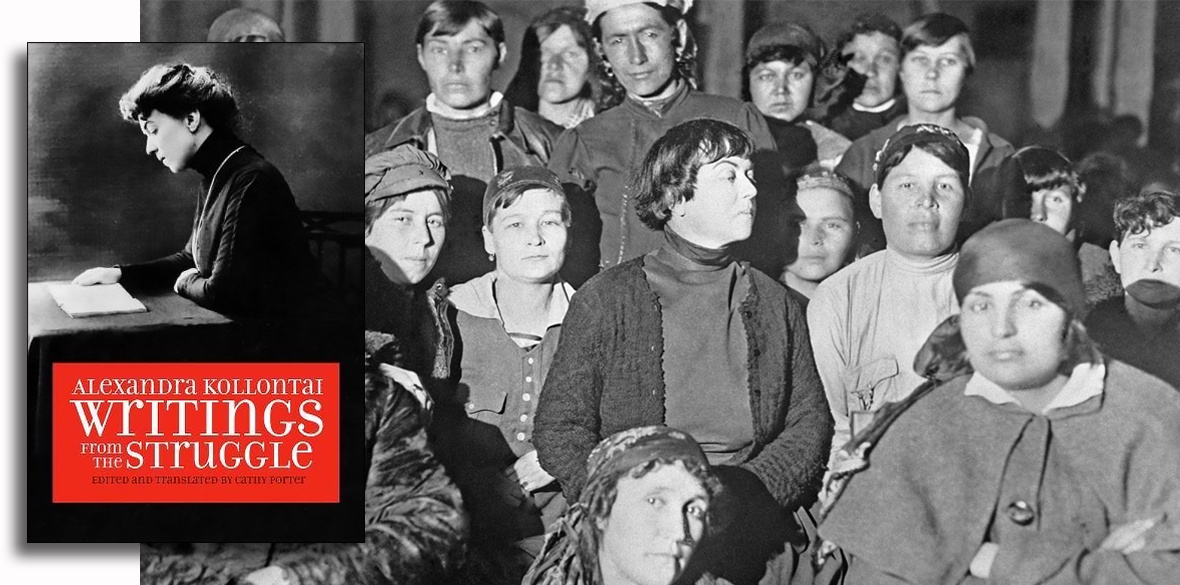This is the last article you can read this month
You can read more article this month
You can read more articles this month
Sorry your limit is up for this month
Reset on:
Please help support the Morning Star by subscribing here
ALTHOUGH brought up and educated in what was for the period a middle class, liberal and progressive environment, from her early teens Alexandra Kollontai (1872-1952) had no intention of becoming a dutiful bourgeois wife.
A thirst for social justice, knowledge and a profession quickly brought her into contact with Russian revolutionaries, more specifically Marxists, and it was there that she began a lifelong struggle for communism.
Extremely well read, well-travelled and a fluent speaker of at least five languages, Kollontai rapidly became a grassroots activist, prodigious writer, skilled educator and propagandist.
In her battles against both tsarist autocracy and capitalist rule, she was a fearless and dedicated revolutionary who never wavered in her insistence that there was a dialectical relationship between socialism and women’s liberation and that neither could be realised without the other.
Having previously penned a seminal and groundbreaking biography, Cathy Porter has now brought together and translated a collection of Kollontai’s writing, with many of the pieces published in English for the first time.
The essays themselves are wonderfully varied. Some are very personal, reflective and autobiographical, others in depth and theoretical, while others are short propaganda pieces originally published in newspapers and as short leaflets.
After a valuable introduction to Kollontai’s life, Porter presents the articles chronologically, linking them together with a series of well-crafted and detailed contextual commentaries.
Disgusted by revisionism and the opportunist elements within Marxist circles — all the more so by their support for the first world war — Kollontai was one of the few Bolsheviks to argue in support of Lenin’s revolutionary defeatism, which involved workers turning their weapons on the ruling classes.
She was also quick to support Lenin’s April Theses and the resulting attendant struggles which eventually brought the Bolsheviks to power in October 1917.
Although critics have sometimes portrayed her appointment as head of the ministry for social welfare as a predictably sexist gesture that gave her little real responsibilities, this can be disproved on two counts.
Combatting widespread destitution faced by street children, the homeless and wounded war veterans was central to the success or otherwise of the communist project and Kollontai’s work on the communalisation of what had been traditionally home-based labour was both radical and innovatory, very much akin to the projects launched on a smaller scale by Sylvia Pankhurst in London.
Not that this was a journey without conflict. Many of her so-called socialist contemporaries opposed women’s entrance into the workforce. And the fact that her recognition of the personal as political encountered resistance then as it does now, recalls Marx’s comment that history often repeats itself, first time as tragedy and second time as farce.
Central to this ongoing hostility was what antagonists saw as her irrelevance and immorality, with her somewhat non-proletarian attacks on the nuclear family and her apparent espousal of free love. Still others found Kollontai’s demands as regards the need for specifically women’s organisations worryingly divisive.
Like her friends Karl Liebknecht and Rosa Luxemburg, Kollontai was very much an independent thinker who often came into conflict with the official party line. An open opponent of the treaty of Brest-Litovsk, she later fiercely spoke out against the New Economic Policy under the banner of the Workers Opposition organisation.
As Porter notes, although a great admirer of Kollontai, Lenin did not consider her either trustworthy or consistent and their relationship was always tense and problematic.
It is hard to know how Kollontai felt about the Stalin era when, for example, abortion was banned, traditional family relationships eulogised and the struggle for women’s freedom seen as something which had all but been achieved with the establishment of social ownership and a planned economy.
Celebratory but never hagiographic, Porter has produced an immensely valuable and readable text that deserves the widest of distribution, all the more so among those who continue to characterise intersectionality as a purely recent phenomenon.
Published by Bookmarks, £12.










